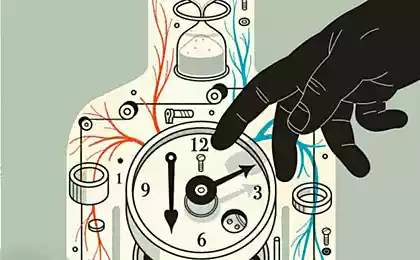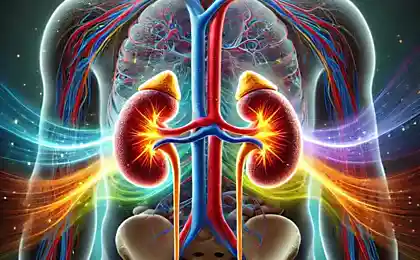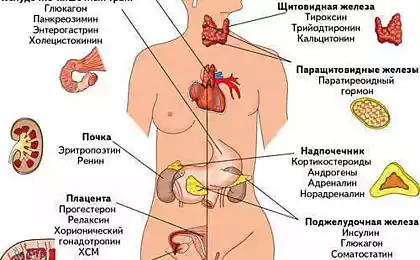225
Sleeping on the weekend will not help: why not “sleep” for a week?
We work hard all week, get up early, go to bed late, hoping we'll get some sleep.

Introduction. Almost all of us have faced a scenario: all week we get up neither light nor dawn, go to bed late, do not have time to recover normally – and all this in order to “sleep” on the weekend. But is a long sleep on Saturday and Sunday really able to compensate for chronic sleep deprivation and restore vigor for the whole week ahead? Many people sincerely believe that it is possible to "donate" the missing hours in a day or two rest. However, scientific research points to the opposite: a sharp increase in the amount of sleep at the end of the week not only does not solve the problem of exhaustion, but can further upset our biological rhythms.
In this article, we will discuss why “weekend sleep” is a myth, how constant lack of sleep affects the body and what it is about. realistically It can be done to improve quality of life and performance without rash “experiments” with your own health. We turn to scientific facts, statistics and expert opinions so you can draw conclusions consciously and take care of yourself on a deeper level.
Why sleep deprivation is harmful even during the weekend
There is a widespread opinion that if you sleep for 5-6 hours on weekdays, you can safely "catch up" due to ten hours of sleep on Saturday or Sunday. However, rhythms Our bodies work very differently. Key recovery processes – the production of growth hormone, cell regeneration, recycling of “junk” proteins in the brain – require regular and sufficiently long rest every night. If we systematically reduce this sleep on working days, the so-called sleep debt accumulates.
When we sleep over the weekend, the brain and body receive a regime change signal: the daily rhythm shifts. Dissonance begins between what our body is used to during the working week, and a sharp correction of the regime. As a result, early ascents are again waiting for us on Monday, and a kind of "jetlag" state is obtained, only without long-distance flights. According to research published in ScienceDirect, such “social jet lag” is associated with an increased risk of cardiovascular disease, metabolic disorders, and a loose nervous system.
Circadian beat
Our “biological clock” (circadian rhythms) is regulated by the complex interaction of hormones and neurochemical processes. One of the key hormones is melatoninIt promotes sleepiness and is produced in the dark. Regular regime of the day synchronizes the production of melatonin, cortisol and other hormones responsible for wakefulness and sleep. Violation of the regime (lie down too late, get up at different hours) can cause a constant feeling of fatigue, decreased concentration and general stress for the body.
Short-term "compensation" does not restore the resource
Sleeping an extra 2-3 hours on the weekend is, of course, more pleasant than getting up at 6 am. But our body is able to “remember” sleep deprivation not for a day or two, but for a longer period of time. Some studies show that even if you devote one day off to sleep, your cognitive functions (attention, memory, and the ability to make quick decisions) won’t return to their optimal levels if you regularly cut back on sleep all week. In other words, sleep deficiency Not eliminated by a couple of days of intense rest.

Consequences of chronic sleep deprivation
Lack of sleep affects not only energy levels and mood, but also a range of physiological and psychological indicators. Here are just some of the typical consequences:
Do not forget about more serious diagnoses that in the long term can provoke chronic sleep deprivation: hypertension, depression, increased risk of diabetes and even cardiovascular problems. According to the American Heart Association, it is enough to sleep an hour and a half less than the recommended minimum (7-8 hours a day) to significantly increase the risks to heart health.
Why sleep is so important
It may seem that the problem of lack of sleep is exaggerated and that the "modern man" just has to habituate It's the rhythm of life. However, from the point of view of neuroscience, sleep is not a luxury, but a basic need of the body. During sleep, the brain performs critical operations to sort memories, restores energy potential, removes metabolic products (for example, proteins associated with the formation of amyloid plaques that contribute to Alzheimer’s disease).
In addition, in a dream, tissues, muscles are actively restored and even our hormonal system is “rebooted”. High levels of stress hormones (cortisol and adrenaline) gradually decrease during the deep stages of sleep, helping the body go into regeneration mode. This means that without a quality night’s rest, we actually continue to remain on alert, wearing out physiological resources.
What to do if you can’t “sleep more”?
Of course, we can not always afford to go to bed an hour earlier – someone has an evening busy with additional work, someone has small children, and someone just lives in the mode of “eternal deadlines”. But, as practice shows, there are several solutions that help optimize sleep even in a busy schedule.
1. Minimize background light and noise
According to the recommendations National Sleep FoundationA dark and quiet environment in the bedroom promotes better sleep and deeper sleep stages. Use tight curtains, turn off electronic devices, or turn them into “plane mode.” This is especially important in the last 30-60 minutes before going to bed.
2. Giving up gadgets an hour before bedtime
The blue light of smartphone and laptop screens disrupts melatonin production. If you have to read something from the screen, use “night mode” or special filters that reduce light load. If possible, just put the devices away until morning.
3. Short daytime naps (power nap)
If your schedule allows, try to practice “short sleep” during the day, lasting 20-30 minutes. This can make up for some of the sleep deficit. However, it is not necessary to turn the “daytime sleep” into a full-fledged many hours of hibernation: this can further disrupt the night regime.
4. Stick to a regular schedule
Try to go to bed and get up at about the same time, even on weekends. Let the difference be no more than an hour. In this way, you will avoid the social jet lag described above and gradually train your body to a stable sleep cycle. Planning Here is more important than one-time attempts to sleep.
5. Improve quality, not just quantity
Sometimes it is enough to improve the quality of sleep: choose a comfortable mattress and pillow, ventilate the room before bedtime, drink less coffee and strong tea in the afternoon. Some people find relaxation practices, meditation, or light stretching before bed helpful to relieve muscle tension and calm the mind.

Conclusion
We used to believe that lack of sleep on weekdays can be compensated for a long sleep on Saturday and Sunday. But physiology and numerous studies indicate that reverseSleeping on weekends disrupts biological rhythms and does not guarantee full recovery. Chronic sleep deficiency leads to cognitive decline, increased risk of heart disease, metabolic disorders and many other undesirable consequences.
It is much more effective to pay attention to the optimization of sleep in everyday life, taking care of the quality and regularity of night rest. Instead of hoping to “sleep” for a couple of morning hours on Saturday, it is better to adhere to the golden rule throughout the week: go to bed and get up at about the same time, take care of your “sleep budget” and try not to waste it. Even small steps towards improving the regime – reducing evening gadget sessions, airing the room, relaxing rituals – can significantly improve overall well-being, productivity and mood. And then you will not have to rush between the harsh everyday reality and the illusion of a “leftover” weekend.
This article was prepared specifically for bashny.net. Materials from open scientific sources, medical and psychological research were used.

Introduction. Almost all of us have faced a scenario: all week we get up neither light nor dawn, go to bed late, do not have time to recover normally – and all this in order to “sleep” on the weekend. But is a long sleep on Saturday and Sunday really able to compensate for chronic sleep deprivation and restore vigor for the whole week ahead? Many people sincerely believe that it is possible to "donate" the missing hours in a day or two rest. However, scientific research points to the opposite: a sharp increase in the amount of sleep at the end of the week not only does not solve the problem of exhaustion, but can further upset our biological rhythms.
In this article, we will discuss why “weekend sleep” is a myth, how constant lack of sleep affects the body and what it is about. realistically It can be done to improve quality of life and performance without rash “experiments” with your own health. We turn to scientific facts, statistics and expert opinions so you can draw conclusions consciously and take care of yourself on a deeper level.
Why sleep deprivation is harmful even during the weekend
There is a widespread opinion that if you sleep for 5-6 hours on weekdays, you can safely "catch up" due to ten hours of sleep on Saturday or Sunday. However, rhythms Our bodies work very differently. Key recovery processes – the production of growth hormone, cell regeneration, recycling of “junk” proteins in the brain – require regular and sufficiently long rest every night. If we systematically reduce this sleep on working days, the so-called sleep debt accumulates.
When we sleep over the weekend, the brain and body receive a regime change signal: the daily rhythm shifts. Dissonance begins between what our body is used to during the working week, and a sharp correction of the regime. As a result, early ascents are again waiting for us on Monday, and a kind of "jetlag" state is obtained, only without long-distance flights. According to research published in ScienceDirect, such “social jet lag” is associated with an increased risk of cardiovascular disease, metabolic disorders, and a loose nervous system.
Circadian beat
Our “biological clock” (circadian rhythms) is regulated by the complex interaction of hormones and neurochemical processes. One of the key hormones is melatoninIt promotes sleepiness and is produced in the dark. Regular regime of the day synchronizes the production of melatonin, cortisol and other hormones responsible for wakefulness and sleep. Violation of the regime (lie down too late, get up at different hours) can cause a constant feeling of fatigue, decreased concentration and general stress for the body.
Short-term "compensation" does not restore the resource
Sleeping an extra 2-3 hours on the weekend is, of course, more pleasant than getting up at 6 am. But our body is able to “remember” sleep deprivation not for a day or two, but for a longer period of time. Some studies show that even if you devote one day off to sleep, your cognitive functions (attention, memory, and the ability to make quick decisions) won’t return to their optimal levels if you regularly cut back on sleep all week. In other words, sleep deficiency Not eliminated by a couple of days of intense rest.

Consequences of chronic sleep deprivation
Lack of sleep affects not only energy levels and mood, but also a range of physiological and psychological indicators. Here are just some of the typical consequences:
- Weakened immunity. Chronic sleep deprivation reduces resistance to viruses and bacteria, increasing the risk of colds and other infectious diseases.
- Impairment of cognitive functions. Deterioration of concentration, memory and ability to process information. Productivity is falling despite all efforts.
- Metabolic failure. Lack of sleep is associated with a change in the hormone leptin, responsible for feeling full, and ghrelin, which causes appetite. As a result, the likelihood of gaining excess weight increases.
- Dispersed attention behind the wheel. Driving a car in a state of “semi-drowsiness” is no less dangerous than driving tired after changing at night in an unsafe condition.
- Emotional instability. Increased irritability, anxiety and emotional outbursts are frequent companions of people who do not recover properly.
Do not forget about more serious diagnoses that in the long term can provoke chronic sleep deprivation: hypertension, depression, increased risk of diabetes and even cardiovascular problems. According to the American Heart Association, it is enough to sleep an hour and a half less than the recommended minimum (7-8 hours a day) to significantly increase the risks to heart health.
Why sleep is so important
It may seem that the problem of lack of sleep is exaggerated and that the "modern man" just has to habituate It's the rhythm of life. However, from the point of view of neuroscience, sleep is not a luxury, but a basic need of the body. During sleep, the brain performs critical operations to sort memories, restores energy potential, removes metabolic products (for example, proteins associated with the formation of amyloid plaques that contribute to Alzheimer’s disease).
In addition, in a dream, tissues, muscles are actively restored and even our hormonal system is “rebooted”. High levels of stress hormones (cortisol and adrenaline) gradually decrease during the deep stages of sleep, helping the body go into regeneration mode. This means that without a quality night’s rest, we actually continue to remain on alert, wearing out physiological resources.
What to do if you can’t “sleep more”?
Of course, we can not always afford to go to bed an hour earlier – someone has an evening busy with additional work, someone has small children, and someone just lives in the mode of “eternal deadlines”. But, as practice shows, there are several solutions that help optimize sleep even in a busy schedule.
1. Minimize background light and noise
According to the recommendations National Sleep FoundationA dark and quiet environment in the bedroom promotes better sleep and deeper sleep stages. Use tight curtains, turn off electronic devices, or turn them into “plane mode.” This is especially important in the last 30-60 minutes before going to bed.
2. Giving up gadgets an hour before bedtime
The blue light of smartphone and laptop screens disrupts melatonin production. If you have to read something from the screen, use “night mode” or special filters that reduce light load. If possible, just put the devices away until morning.
3. Short daytime naps (power nap)
If your schedule allows, try to practice “short sleep” during the day, lasting 20-30 minutes. This can make up for some of the sleep deficit. However, it is not necessary to turn the “daytime sleep” into a full-fledged many hours of hibernation: this can further disrupt the night regime.
4. Stick to a regular schedule
Try to go to bed and get up at about the same time, even on weekends. Let the difference be no more than an hour. In this way, you will avoid the social jet lag described above and gradually train your body to a stable sleep cycle. Planning Here is more important than one-time attempts to sleep.
5. Improve quality, not just quantity
Sometimes it is enough to improve the quality of sleep: choose a comfortable mattress and pillow, ventilate the room before bedtime, drink less coffee and strong tea in the afternoon. Some people find relaxation practices, meditation, or light stretching before bed helpful to relieve muscle tension and calm the mind.

Conclusion
We used to believe that lack of sleep on weekdays can be compensated for a long sleep on Saturday and Sunday. But physiology and numerous studies indicate that reverseSleeping on weekends disrupts biological rhythms and does not guarantee full recovery. Chronic sleep deficiency leads to cognitive decline, increased risk of heart disease, metabolic disorders and many other undesirable consequences.
It is much more effective to pay attention to the optimization of sleep in everyday life, taking care of the quality and regularity of night rest. Instead of hoping to “sleep” for a couple of morning hours on Saturday, it is better to adhere to the golden rule throughout the week: go to bed and get up at about the same time, take care of your “sleep budget” and try not to waste it. Even small steps towards improving the regime – reducing evening gadget sessions, airing the room, relaxing rituals – can significantly improve overall well-being, productivity and mood. And then you will not have to rush between the harsh everyday reality and the illusion of a “leftover” weekend.
This article was prepared specifically for bashny.net. Materials from open scientific sources, medical and psychological research were used.
Navy SEAL Box Breathing: Restore Calmness and Control in Just a Few Minutes
The Tough Choice: Why Selfishness Became the New Ethic of Survival























